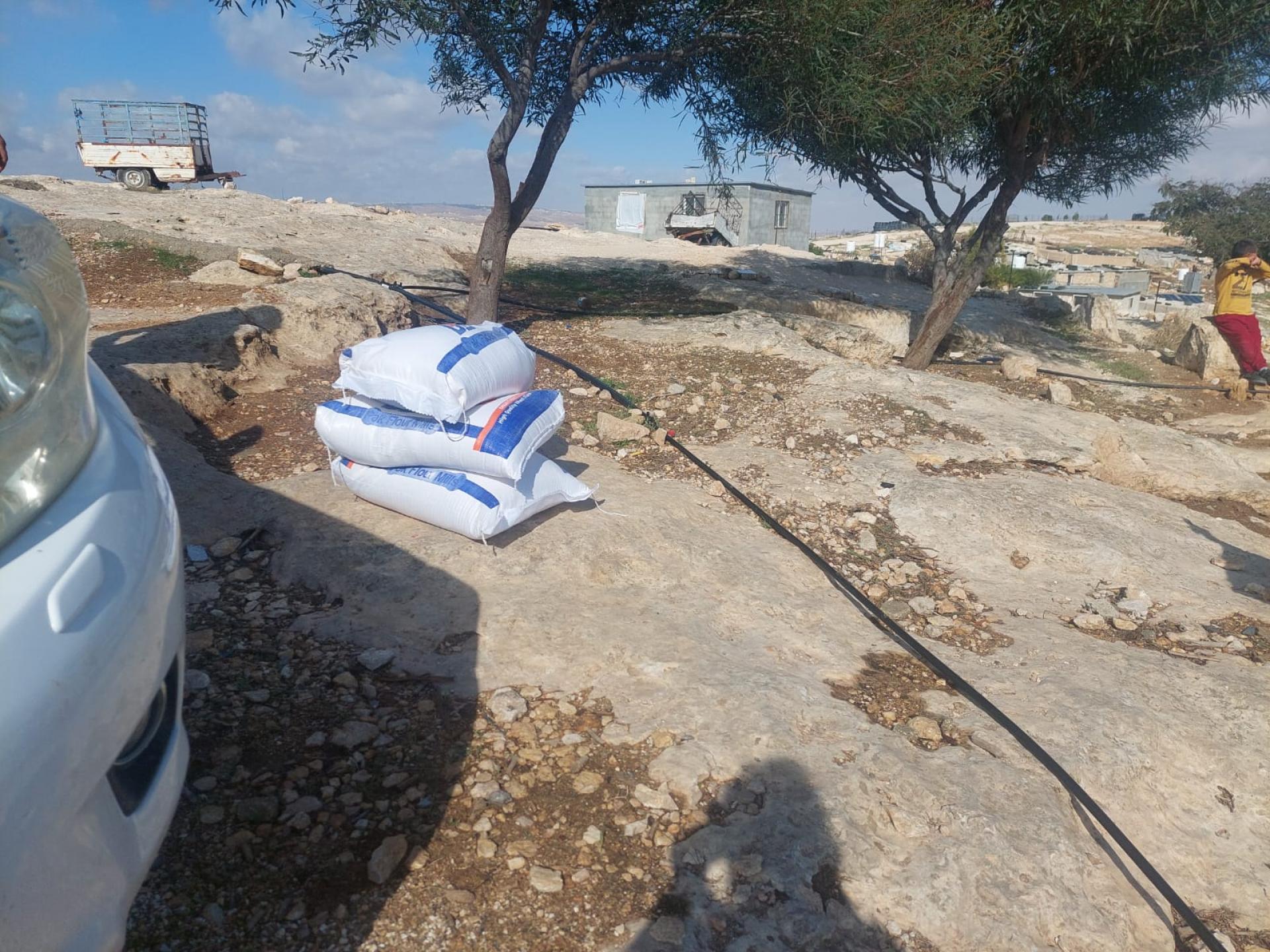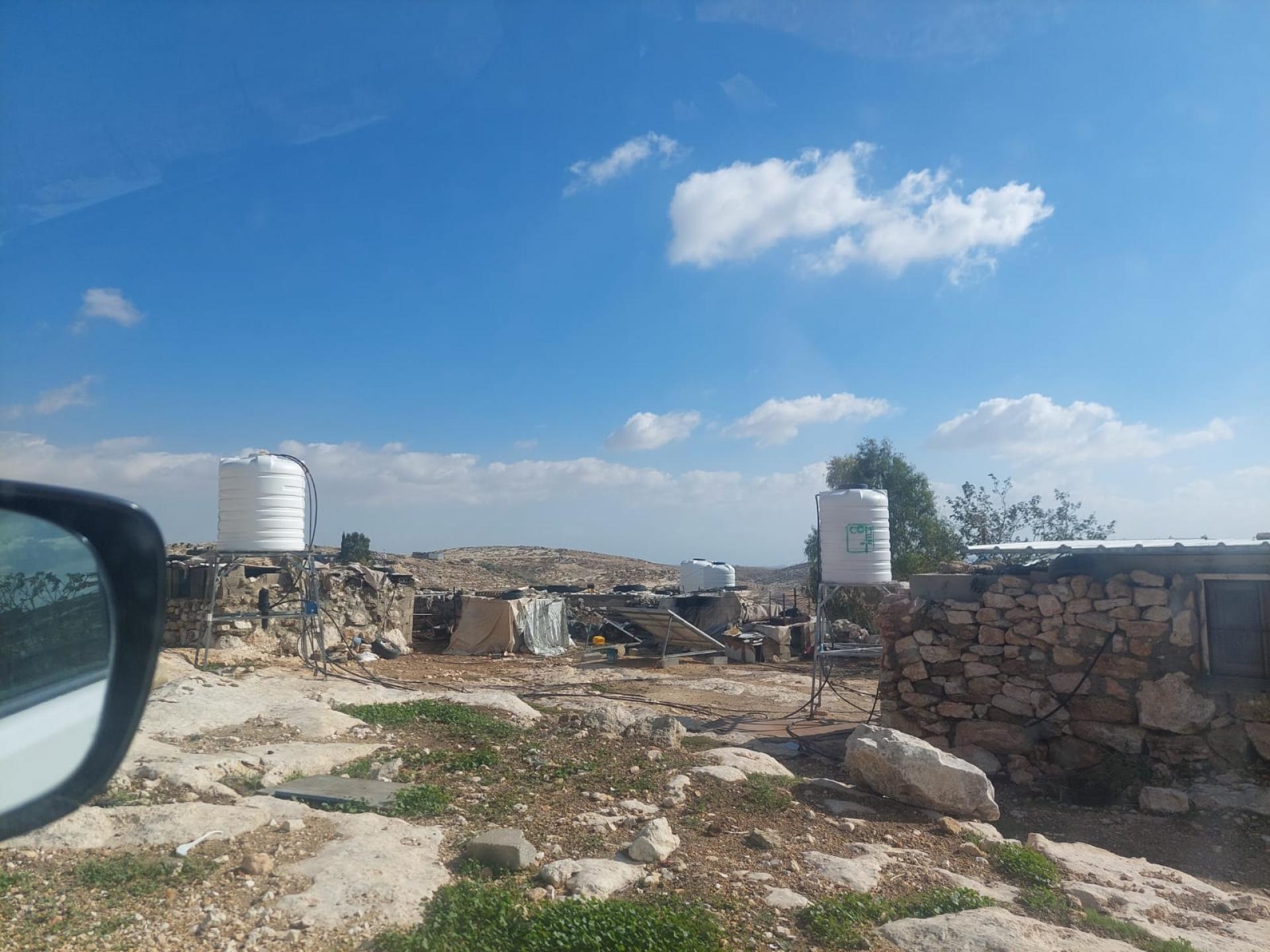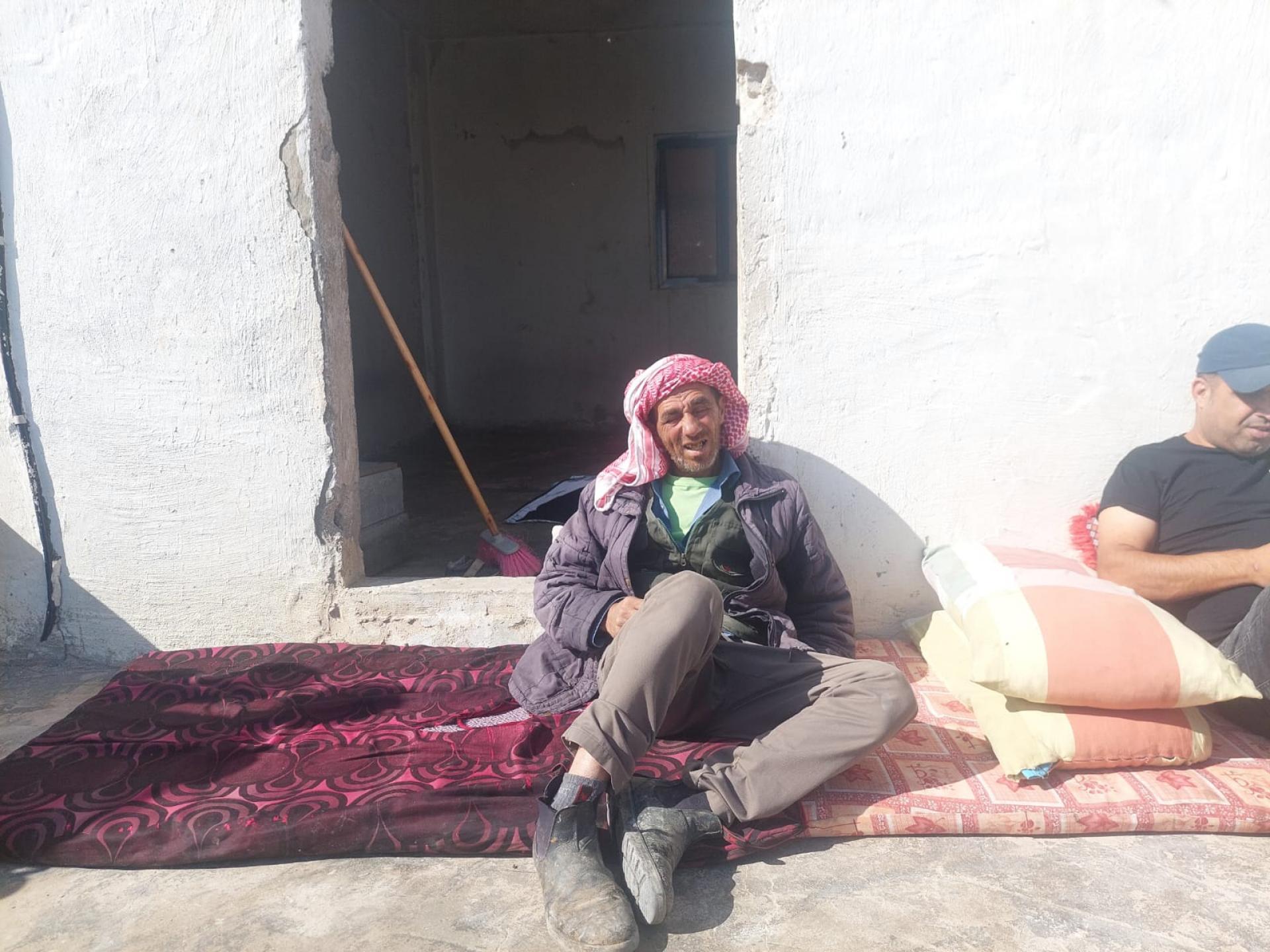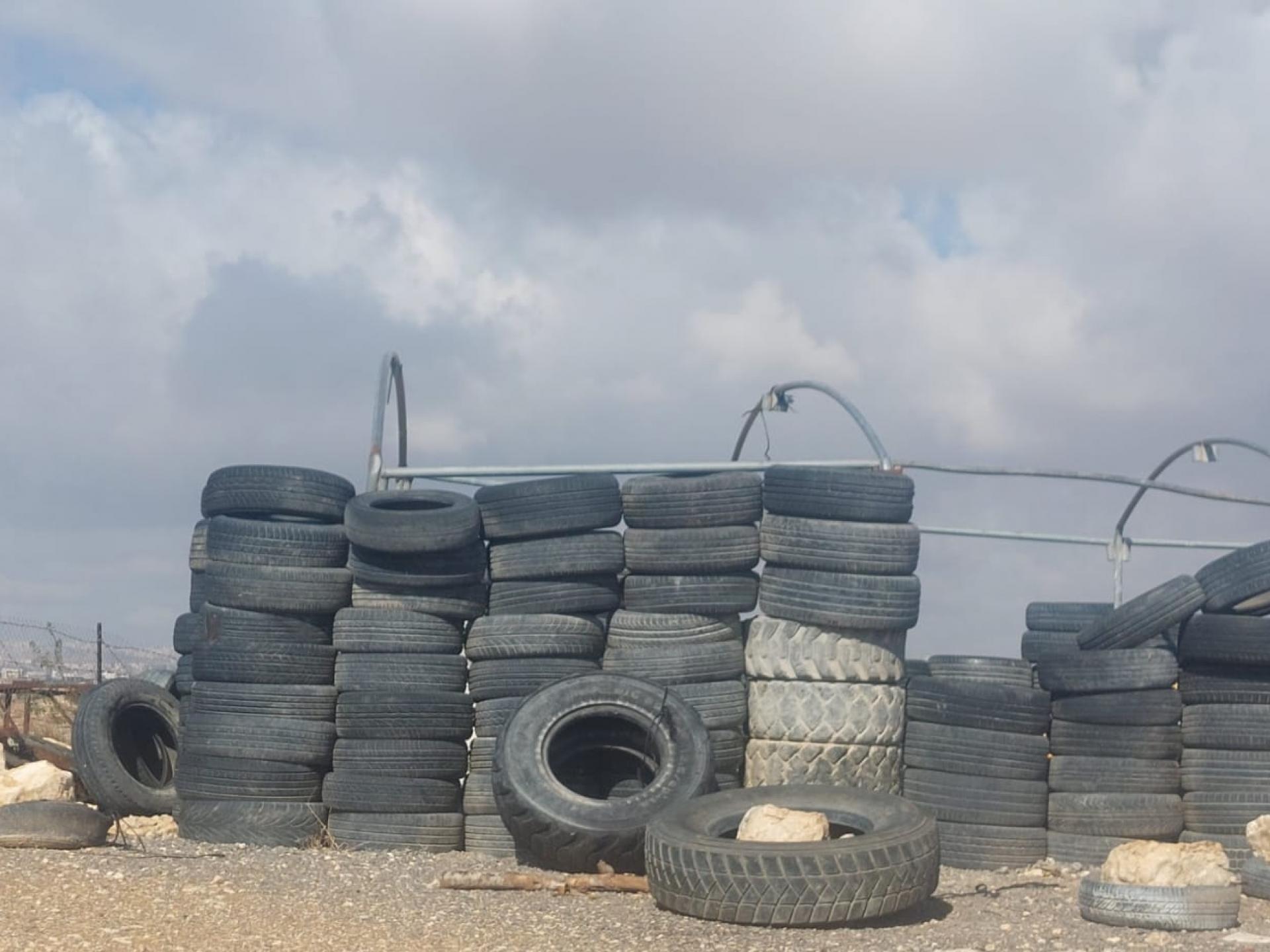Masafer Yatta: They kill them softl
Once again we devoted most of our shift to visiting Fadel’s family in Mufaqara. To bring basic groceries and flour to the families. They are currently not permitted to travel to run errands, shop, graze their flocks, or go to school and have to remain near their homes. Mohammed heard from local residents that they are not permitted to drive anywhere from the Meitarim Regional Council to Carmel Umm al Khair. This is the area most densely populated by the settlers in the South Hebron Hills, and that is evidently how they protect them.
The traffic was very sparse on Route, 60 and on Route 317 there was even less traffic.
We arrived at Mufaqara and encountered a shelter made of tent material and tires that had been demolished. Evidently the local residents had erected the shelter to monitor the patrols conducted by the settlers. The District Coordination and Liaison Office claimed “You built without a permit” so they demolished it. Criminal acts are permitted here only to the “masters of the land”.
Fadel explained that he is continuing to patrol every hour or two each night and now the situation has improved. I asked: “How has it improved? “ Fadel explained that the settlers are no longer permitted to approach them and only the army comes near, and the soldiers behave better. Fadel is satisfied.
We unloaded the items we had brought and the children were pleased to eat “Crembo” chocolate marshmallow treats.
Hibah, Fadel’s daughter lives in an apartment that is 20 minutes away during normal times, came to visit her parents with her children a week ago. Her husband was able to drive her as far as ,Tawani, but when the army arrived he fled. Her parents somehow managed to bring her from Tawani, which is 5 kilometers away along winding roads. She will have to return home but how will she be able to? There is a section of road on which they are not permitted to drive. This is apartheid in all senses of the word, and the bags of flour that we brought are stuck in the shed where the sheep are held. They asked for us to help. We took Hiba and her children home and we loaded up the sacks of flour and took them to Mufkara.
It is impossible to visit the grandparents or to bring groceries. They are dependent upon other people.
We need to imagine ourselves in their position.




